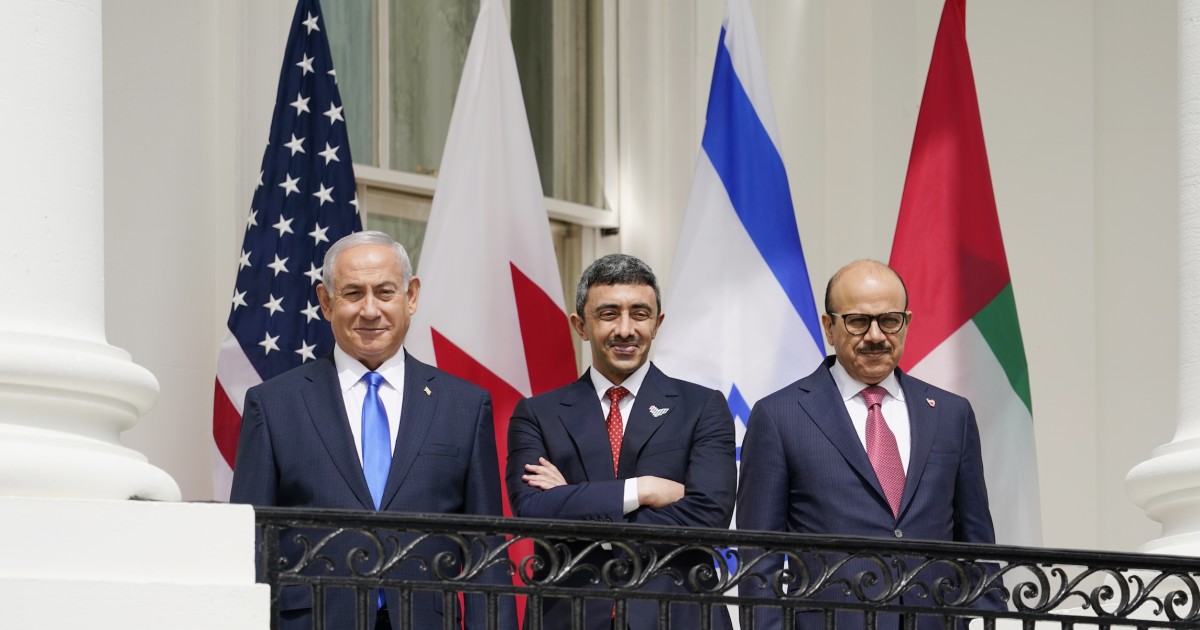The Norwegian Nobel Committee last week awarded Maria Ressa of the Philippines and Dmitry Muratov of Russia this year’s Nobel Peace Prize.
While Ressa and Muratov’s work exposing their respective oppressive regimes should be applauded, there was a better choice for this year’s prize. Namely, the parties behind the U.S.-brokered Abraham Accords, where Israel normalized ties with the United Arab Emirates, Bahrain, Sudan, and Morocco.
The prize should have been shared between former President Donald Trump, former Israeli Prime Minister Benjamin Netanyahu, Emirati President Khalifa bin Zayed Al Nahyan, Bahraini King Hamad bin Isa Al Khalifa, Sudanese Sovereign Council Chairman Abdel Fattah al-Burhan, and Moroccan King Mohammed VI.
The accords were the first nation-to-nation Middle East peace deals in 25 years. Moreover, they mark an evolving Middle East. One that recognizes Iran, not Israel, as the greatest threat in the region. One that pursues a better, common future above the animosity and blood of the past. Other countries, including Saudi Arabia, have hinted at joining the accords.
The historic scale of the accords should not be underestimated.
Sudan was the home of the 1967 Khartoum Resolution, which included the three no’s: no peace with Israel, no recognition of Israel, and no negotiations with it. Well, today, the three no’s have become three yeses. They have unlocked countless economic, religious , security, social, and other opportunities between Israel and Muslim countries.
The outside-in approach of having Mideast countries normalize ties with Israel, as opposed to Mideast peace being contingent on Israeli-Palestinian peace, is a playbook that will be used in the future even if the Palestinians refuse to make peace with Israel.
Middle East peace should have been rewarded this year. Otherwise, why name it a peace prize?
Jackson Richman is a journalist in Washington, D.C. Follow him @jacksonrichman.
https://www.washingtonexaminer.com/opinion/why-didnt-the-abraham-accords-win-the-nobel-peace-prize
